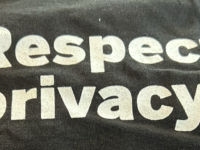Earlier this week, I wrote about how the government’s inclusion of warrantless information demand powers in Bill C-2 may make this the most dangerous lawful access proposal yet, exceeding even the 2010 bill led by Conservative Public Safety Minister Vic Toews. The post emphasized the broad scope of the information demand power. Unlike prior lawful access proposals that targeted telecom and Internet companies, Bill C-2 targets anyone that provides a service to the public. This could include physicians, lawyers, accountants, financial institutions, hotels, car rental companies, libraries, and educational institutions. The list literally never ends. Each of these service providers could be compelled to confirm whether they have provided services to any subscriber, client, account, or identifier. They must also disclose whether they have any information about the subscriber, client, account or identifier as well as advise where and when they provided the service. On top of that, they must advise when they started providing the service and list the names of any other person that may have provided other services. All without a warrant or court oversight.
Department of Justice officials provided a briefing on the provisions yesterday and confirmed this reading of the bill. Officials acknowledged that Bill C-2 extends far beyond just telecom companies to services such as financial institutions, car rental companies, and hotels. When asked about hospitals, physicians, and other health professionals, the officials affirmed that they were covered as well (officials claimed that there would still be the need for a criminal investigation, but that is incorrect since this applies to any Act of Parliament, not just the Criminal Code).
Read more ›











